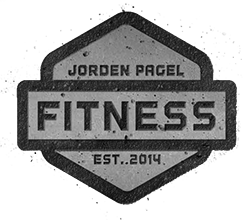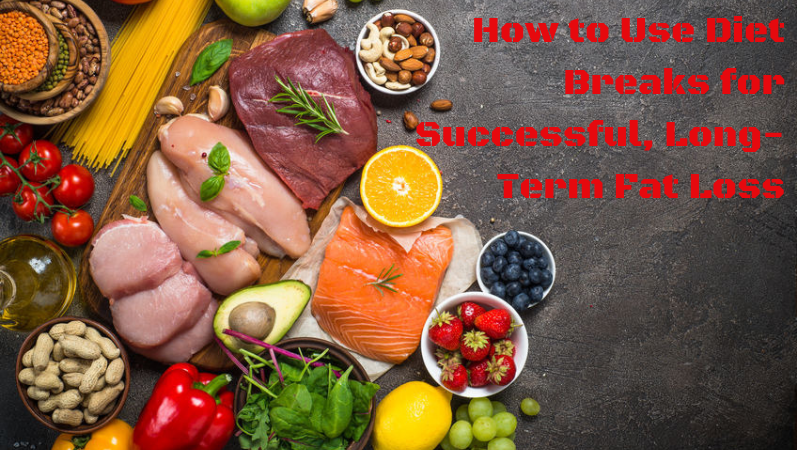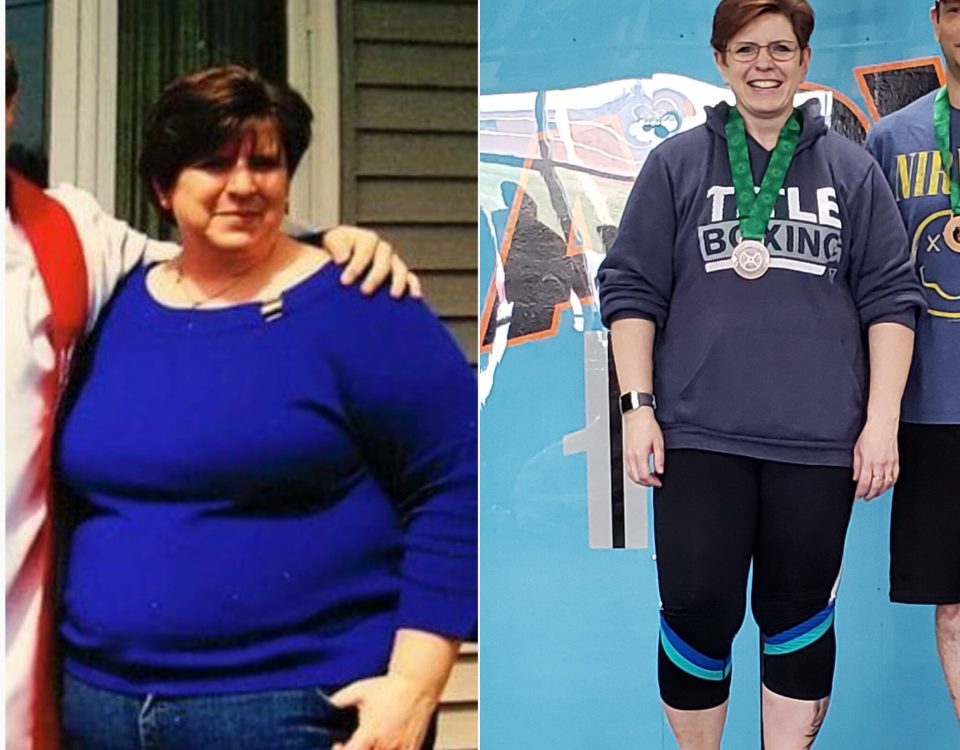Sleep: Everything You NEED to Know
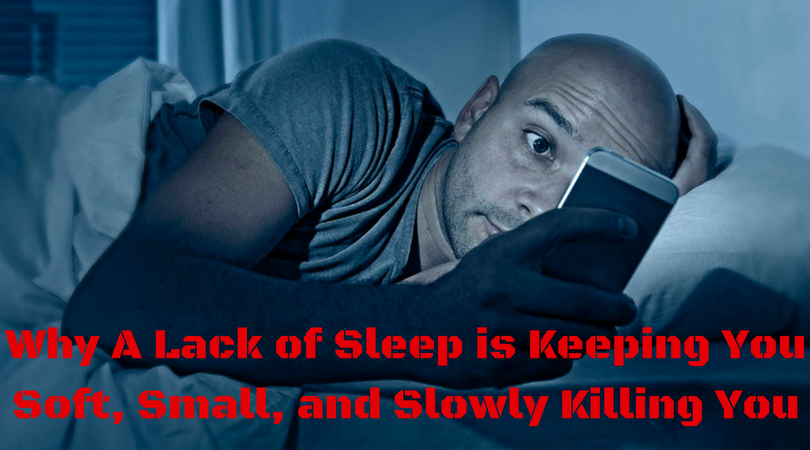
When it comes to building muscle, losing fat, and living a healthier lifestyle, the two things you hear people talk about all the time are diet and exercise. After all, whether you want to get shredded and see your abs for the first time, or pack on size so you have to walk sideways through doors, how you eat and how you train are the main influencers of that progress.
But lost amongst the debate on what’s the best diet for fat loss, or how you should train to add size is one very important crucial aspect.
Sleep.
In the #hustle and #grind world we live in, we view a lack of sleep like a badge of honor. Why get a solid 8 hours when you can stay up into the wee hours of the morning working? Or, in the case of most people, drinking, partying, or watching Netflix.
The cold, hard truth is that our bodies were not made to live this way. Sure, you may be able to function on a few hours of sleep per night, but there is a huge difference between functioning, and living a healthy life.
In order to get the optimal amount of benefits from sleep, the average adult needs somewhere between 7-9 hours per night. Yet, according to the CDC over 30% of adults get less than 6 hours of sleep per night; causing them to declare sleep deprivation a public health epidemic.
What’s the big deal, though?
The big deal is, the amount of sleep you get doesn’t just affect our ability to lose fat or build muscle, but rather it has an impact on every single thing we do.
I’m not one for scare tactics to get people to change their habits, but in this case, I’m going to make an exception. That’s how important sleep is to our health. So, consider the rest of this article just that: an effort into scaring you to get more sleep.

Sleep and Hormone Function
While a lack of sleep does impact how we build muscle and lose fat, a lot of that stems from our endocrine system. The reality is, a lot of key hormones in our body are affected by how much sleep we get; specifically Testosterone, Growth Hormone, Leptin, Ghrelin, and Cortisol.
While our hormones cannot override a calorie deficit/surplus in our quest to lose fat or build muscle, there is no denying the impact they have on our bodies ability to do those things. And since sleep has one of the largest effects on the functions of our endocrine system, that’s a good place to start.
Testosterone
The topic of testosterone is an article all itself. But without going off on a diatribe, we’ll just say this: man or woman, testosterone is arguably THE most important hormone our bodies produce when it comes to losing fat, building muscle, sexual function, and overall health.
The majority of our testosterone is produced while we sleep. This is why for men, waking up with an erection is an excellent sign of healthy testosterone production. In fact, we need a minimum of three uninterrupted hours of sleep for optimal testosterone production to occur.
Higher levels of testosterone have been linked to lower body fat percentage, more lean mass, less depression, healthier sperm production in men, higher libido in men and women, low rate of disease, and more satisfied sexual partners (that last one being anecdotal).
Growth Hormone (GH)
GH is one of the most powerful hormones our bodies produce; it’s main job being the growth and repair of cells. So, not only does GH help build more muscle tissue, but it also repairs damaged muscle, joints, and ligaments, while increasing bone density. Higher levels of growth hormone are also associated with lower body fat levels because GH promotes the oxidation of stored fatty acids.
Cortisol
Unlike testosterone and GH, more sleep actually decreases the body’s production of cortisol; otherwise known as the stress hormone. While some cortisol is good, chronically elevated levels are not, as cortisol has a direct effect on testosterone and GH production. The more cortisol your body produces, the less testosterone and GH get secreted.
Additionally, elevated cortisol activate the reward centers in the brain, which can cause us to crave highly palatable, high-calorie foods; making cravings and hunger more difficult to deal with while trying to lose fat.
Leptin & Ghrelin
A lack of sleep also has an effect on how our bodies regulate appetite; specifically when it comes to leptin and ghrelin.
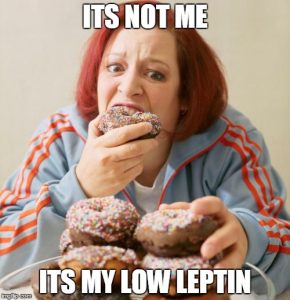 Leptin is the hormone responsible for telling us we’re full, while ghrelin is the hormone our bodies release when we’re feeling hungry. These hormones are already working against us w when we’re trying to lose fat, because a calorie deficit naturally decreases the production of leptin while increasing the production of ghrelin. However, add to that the fact less sleep naturally reduces the production of leptin and increases ghrelin due to increased cortisol production, and you have yourself a recipe for cravings and hunger that will make staying in a deficit very difficult, or at least extremely miserable.
Leptin is the hormone responsible for telling us we’re full, while ghrelin is the hormone our bodies release when we’re feeling hungry. These hormones are already working against us w when we’re trying to lose fat, because a calorie deficit naturally decreases the production of leptin while increasing the production of ghrelin. However, add to that the fact less sleep naturally reduces the production of leptin and increases ghrelin due to increased cortisol production, and you have yourself a recipe for cravings and hunger that will make staying in a deficit very difficult, or at least extremely miserable.
Sleep and Fat Loss
While the hormonal environment a lack of sleep creates can make it tough to lose fat, it appears that even if your diet is on point, being sleep deprived can still slow fat loss.
A study published in the Annals of Internal Medicine found that the amount of sleep you get can affect how much body fat you actually lose. The study took 10 overweight individuals and divided them into two groups: one group that slept 8.5 hours per night, and another that slept for 5.5. The study also controlled caloric intake of the participants, limiting them to about 1,500 calories per day.
At the end of the 14-day study, both groups lost the same amount of weight. HOWEVER, the group that got 8.5 hours of sleep per night lost half of their weight in fat mass, while the 5.5-hour group lost less than a quarter of their weight in fat. Moreover, the participants in the less sleep group lost more muscle mass, meaning a higher drop in metabolic rate – likely due to the decreased levels of testosterone and growth hormone production.
Sleep loss also hinders your decision-making ability. When you’re sleep impaired, your mental clarity, focus, and willpower are decreased. You’re tired and may often feel like you’re in a fog. This can make it tough to tackle dieting decisions like resisting foods you know you shouldn’t eat but are craving because of your elevated cortisol levels. It’s a vicious cycle.
Sleep and Hypertrophy/Performance
Not only does a lack of sleep affect our ability to lose fat, but it hinders our ability to gain muscle as well.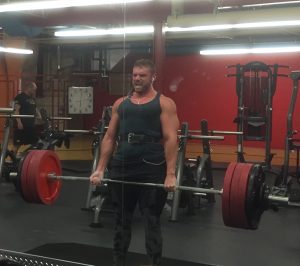
Muscle is damaged and broken down in the gym, but actually is repaired and grown while we rest; specifically, while we sleep. This is due to the production of testosterone and growth hormone which aid muscle protein synthesis, and prevent muscle breakdown.
The lack of sleep directly affects energy levels, and your ability to train and perform in the gym. A greater level of fatigue means less intensity, less volume, and less stimulus; all of which correlate to less muscle damage, meaning less growth. Combined that with the decrease in the production of key muscle building hormones, and a lack of sleep will keep you forever small.
Sleep and Overall Health
In case you need additional reasons why sleep is important, here are a few more:
- Lack of sleep impairs cognitive function similarly to being intoxicated.
- Being sleep deprived increases your risk for heart diseases and stroke; likely due to the increased risk of being overweight.
- Poor sleep decreases insulin sensitivity while increasing your risk for type-2 diabetes.
- Insomnia greatly increases your risk for depression.
- A lack of sleep seems to directly affect inflammation. Inflammation is a precursor to a number of chronic and serious diseases.
How To Improve Sleep
Now that we’ve outlined the importance of sleep, let’s talk about how to improve the quality of sleep we get.
But first, a disclaimer: much like dieting and exercise, if you want to improve your sleep, it’s not something that’s going to happen overnight…pun intended.
Improving your sleep takes commitment and sacrifice. It means saying “no” to staying out late. It means turning the TV off early. It means sticking to a schedule and plan, much like you would how you eat and how you train: because consistency trumps all.
Here’s how to improve your quality of sleep, so you can live a healthier, more shredded, and jacked life:
Go to bed and get up at the same time every day
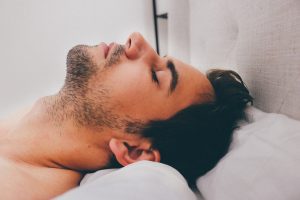 Our bodies thrive on consistency. And sleep is no different. Going to bed and waking up at the same time every day will help condition your body to release key hormones that lead to a better quality of sleep. Sleeping in is okay once in a while, but your body will actually function better if you get up at the same time every day; regardless of what you have going on.
Our bodies thrive on consistency. And sleep is no different. Going to bed and waking up at the same time every day will help condition your body to release key hormones that lead to a better quality of sleep. Sleeping in is okay once in a while, but your body will actually function better if you get up at the same time every day; regardless of what you have going on.
Time your meals appropriately
This one is a bit more personal, as some people can’t sleep on a full stomach. However, eating prior to sleep can actually help you get a better night’s rest. Eating pre-bed – specifically carbohydrates – can help the body produce serotonin; a key hormone that promotes relaxation.
Limit alcohol and caffeine
If you want to get the best night’s sleep you can, you should limit your alcohol consumption. You may think a few drinks can help you sleep, when in actuality, alcohol lessens the quality of your rest, not allowing you to get into the deep REM sleep that produces the most benefits.
Similarly, too much caffeine later in the day can make it harder to fall asleep. If you’re finding yourself having trouble at night, eliminate all caffeine after noon.
Turn off all electronics 30 minutes before sleep
The light emitted from electronic devices can interfere with the brain’s ability to produce melatonin, the hormone needed for deep sleep cycles.
Read or meditate
Do something less mentally stimulating and relaxing before bed. This could include things like reading, meditating, deep breathing, or anything that helps calm you down and increase serotonin production.
Lights out before midnight
Many experts suggest that the quality of your sleep is twice as good before midnight as it is after. This is due to our body’s natural circadian rhythms.
We’re naturally conditioned to sleep when the sun goes down, and get up when the sun rises. It’s actually the increase in artificial light that has disrupted these patterns and the reason we’re not tired until later in the evening. And since the sun goes down well before midnight, getting as much sleep as you can before that actually leads to a better quality of rest.
Supplementation
If you have trouble falling asleep, there are a few supplements that can help. Melatonin is the most popular one, and is highly effective.
However, if you’re looking to take your sleep to the next level while reducing stress and anxiety, I would recommend this stack:
- Ashwagandha – 600mg, 1 hour before bed
- Valerian Root – 500mg, 1 hour before bed
- Vitamin C – 3-5g prior to sleep
- Melatonin – Start with 2.5mg, then scale up until you have fucked up dreams, then dial it back 2.5mg and stay there
- Cortisolve – 1 scoop under the tongue post-workout, or prior to sleep
For more info about this stack and why I find it so beneficial, check out my Complete Incomplete Guide to Supplements.
Have Sex
Sex before bed is another natural sleep aid. Intercourse inhibits the release of cortisol. Less  cortisol in the body will help you feel more relaxed. For women, the increase in estrogen production after sex can enhance the REM sleep cycle, leading to deeper slumber. For men, intercourse leads to the release of prolactin which increases the feelings of fatigue (see ladies, there’s a reason most men fall asleep right away).
cortisol in the body will help you feel more relaxed. For women, the increase in estrogen production after sex can enhance the REM sleep cycle, leading to deeper slumber. For men, intercourse leads to the release of prolactin which increases the feelings of fatigue (see ladies, there’s a reason most men fall asleep right away).
Coincidentally, a good night’s sleep also leads to higher levels of sexual desire and an overall healthier sex life. Just one extra hour of sleep led to a 14 percent increase in the likelihood of sexual activity the next day and a higher level of sexual desire.
Control Your Environment
Keeping your room as dark as possible will help maximize melatonin production. Light has the opposite effect on melatonin, so doing things like dimming your alarm clock, shutting your blinds or getting blackout curtains, and turning off your phone ensure you’re exposed to as little light as possible while trying to fall asleep.
You also need to make sure you’re comfortable. Most people sleep the best in a cooler or neutral temperature room. Some prefer it dead quiet, while others like a little noise, such as a white noise machine or fan.
Controlling your environment also means having a mattress, blanket, and pillows that are comfortable for you. This is one area where you should spend the money if you have it. We spend a third of our lives in bed after all.
Wake Up As Naturally As Possible
Lastly, how you wake up also affects your sleep. Waking up as naturally as possible is key. The best way to do this is to use the body’s circadian rhythms to tell you when to wake. As you sleep, you go through cycles of deeper sleep and lighter sleep. But as the night goes on, your sleep gradually gets lighter and lighter, culminating with your lightest sleep in the mornings as the sun comes up.
Techniques such as using an alarm that gradually gets louder and louder will help to make waking up much easier than one that starts blaring as soon as it goes off. Another tip is to use an alarm clock that gradually emits more and more light, helping the body stop melatonin production.
Sleep: Critical or Super Critical?
Most people tend to focus all their fitness efforts on what they do in the gym and in the kitchen. And while those things are the main drivers of progress, ignoring the other lifestyle factors – like sleep – can be extremely detrimental to your progress. And if you’re not seeing the results you’re after, it’s important to look at what you can improve in ALL aspects of your life, if you want to build the body of your dreams.
Now that we have sleep covered, let’s take care of the rest. Join my free 5-Day Fat Loss course and get everything you need to start shredding fat and build the body of your dreams, today.
